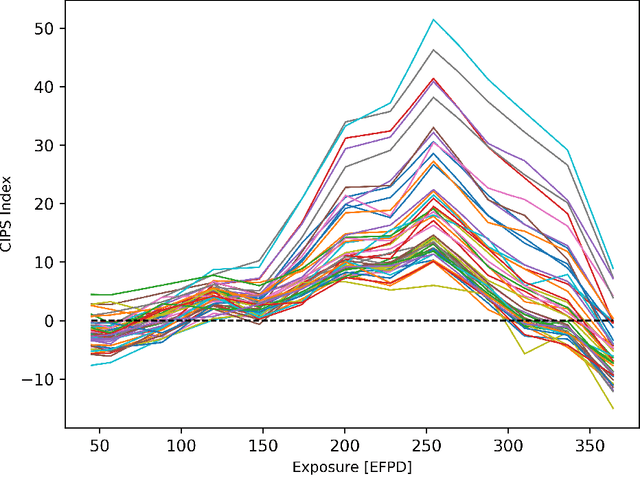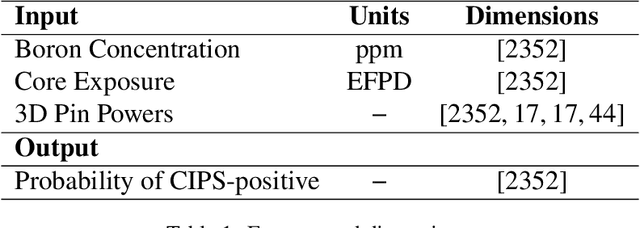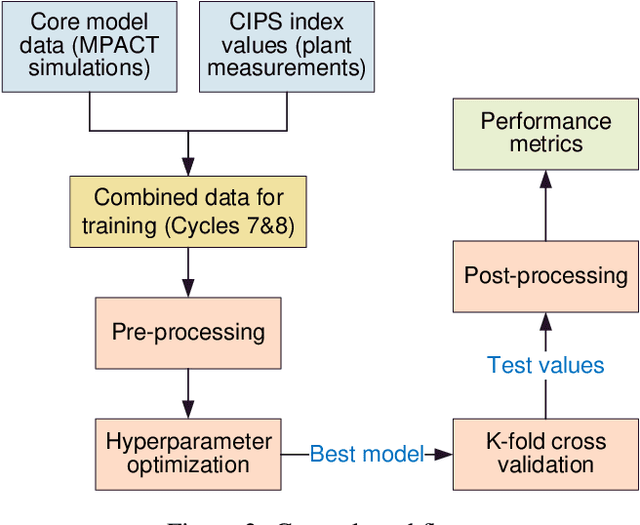Scott Palmtag
Data-Driven Prediction and Uncertainty Quantification of PWR Crud-Induced Power Shift Using Convolutional Neural Networks
Jun 27, 2024



Abstract:The development of Crud-Induced Power Shift (CIPS) is an operational challenge in Pressurized Water Reactors that is due to the development of crud on the fuel rod cladding. The available predictive tools developed previously, usually based on fundamental physics, are computationally expensive and have shown differing degrees of accuracy. This work proposes a completely top-down approach to predict CIPS instances on an assembly level with reactor-specific calibration built-in. Built using artificial neural networks, this work uses a three-dimensional convolutional approach to leverage the image-like layout of the input data. As a classifier, the convolutional neural network model predicts whether a given assembly will experience CIPS as well as the time of occurrence during a given cycle. This surrogate model is both trained and tested using a combination of calculated core model parameters and measured plant data from Unit 1 of the Catawba Nuclear Station. After the evaluation of its performance using various metrics, Monte Carlo dropout is employed for extensive uncertainty quantification of the model predictions. The results indicate that this methodology could be a viable approach in predicting CIPS with an assembly-level resolution across both clean and afflicted cycles, while using limited computational resources.
 Add to Chrome
Add to Chrome Add to Firefox
Add to Firefox Add to Edge
Add to Edge